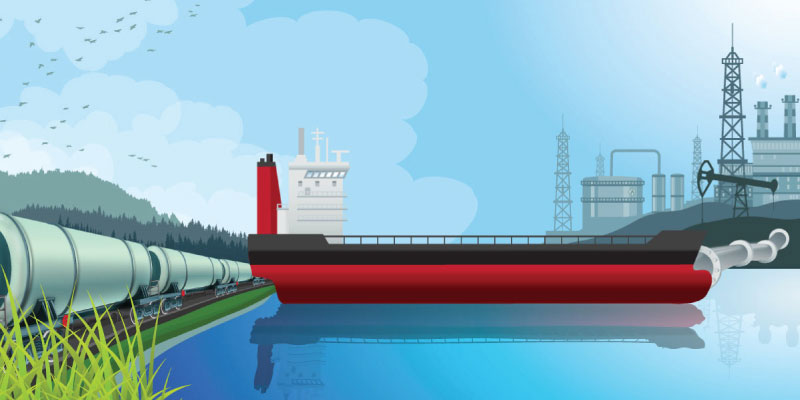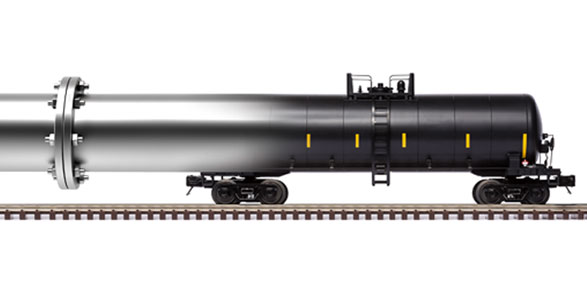Pipelines are 2.5 times less likely than rail to experience a release of product when transporting a million barrels of oil.
intermodal safety
Pipelines are 2.5 times safer than rail for oil transportation.
Pipelines are 4.5 times less likely to have an accident or incident than rail transport.
According to rumour, President Obama is expected to issue the death knell for the Keystone XL pipeline before or during the Labour Day weekend.
Debates over oil pipelines seem to be never-ending. The quintessential example being that of the Keystone XL pipeline, which has languished in regulatory limbo for more than 2,500 days.
Oil and gas pipelines are a critical piece of Canada’s energy infrastructure. In 2013, this mode of transportation moved more than 2.4 billion barrels of oil and gas. But accidents do happen as seen with the recent oil spill in Alberta where a Nexen oilsands pipeline recently ruptured.
On May 1, 2015, an interesting thing happened. The United States and Canada came to agreement about transporting oil and other flammable liquids.
Four recent oil-train derailments—two in the United States and two in Canada accompanied by yet another drive-by rhetorical smear of the Keystone XL pipeline by U.S. President Barack Obama—have re-invigorated the debate over how Canadians and Americans transport oil.


